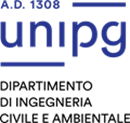Study-unit MATHEMATICAL ANALYSIS 1
| Course name | Building engineering and architecture |
|---|---|
| Study-unit Code | GP004882 |
| Curriculum | Comune a tutti i curricula |
| Lecturer | Carlo Bardaro |
| Lecturers |
|
| Hours |
|
| CFU | 5 |
| Course Regulation | Coorte 2022 |
| Supplied | 2022/23 |
| Supplied other course regulation | |
| Learning activities | Base |
| Area | Discipline matematiche per l'architettura |
| Sector | MAT/05 |
| Type of study-unit | Obbligatorio (Required) |
| Type of learning activities | Attività formativa monodisciplinare |
| Language of instruction | Italian |
| Contents | Functions of a real variable, derivatives, integration, numerical series. Some practical applications. |
| Reference texts | Book: Marcellini - Sbordone "Elementi di Analisi Matematica Uno", versione semplificata per i nuovi corsi di laurea, Liguori Editore, 2002. For exercises and related topics: Book: C. Vinti "Lezioni di Analisi Matematica Vol. I", COM Editore, Roma |
| Educational objectives | Students acquire the basic mathematical knowledge to face the science subjects taught in the graduate program . In particular students, besides a basic theoretical knowledges (mathematical concepts, theorems, etc) will be able to model from a mathematical point of view the problems that arise within the professional subjects : for example, methods of optimization, calculation of areas, applications of physical type , etc |
| Prerequisites | Elementary mathematics: elementary functions, elementary set theory, algebra (equations, inequalities). These are basic knowledges |
| Teaching methods | Theoretical lessons, in which the basic topics of the course are developed, along with practical exercises that are important in order to develop methods of calculation, given according to a suitable calendar . The course is developed during about 40 hours of theoretical lessons, with several practical exsercises, and 10 hours for furthers applications. |
| Other information | Students are strongly advised to follow the introductory courses prepared by the Department of Civil and Environmental Engineering The course will be accompanied by a few hours ( 10 ) dedicated to the exercises , which will be discussed in the applications of the theory. A consultation timetable is organized (see the web site of the Department of Civil and Enviromental Engineering). However, it is possible to carry out remote consultations by appointment. |
| Learning verification modality | The examination involves an individual written test lasting one hour and an individual oral examination lasting an average of half an hour . The written test is aimed at verifying the correct application of the rules and all theoretical skills reached by the student in manipulating the calculation methods . The oral test is instead aimed at the verification of theoretical knowledge and the awareness acquired by the student in dealing with the topics of study , in addition to the establishment of presentation skills and language reached . The written test is prevalent with respect to the oral examination, since this examination can be taken only if the written test has been passed. |
| Extended program | Topology on the real axis, limits and continuity. Differentiation and qualitative study of a real functions. Applications to optimization problems in R; Taylor formula and approximation. Riemann integration and in generalized sense; calculus of an area,. Numerical series and Taylor series. |


